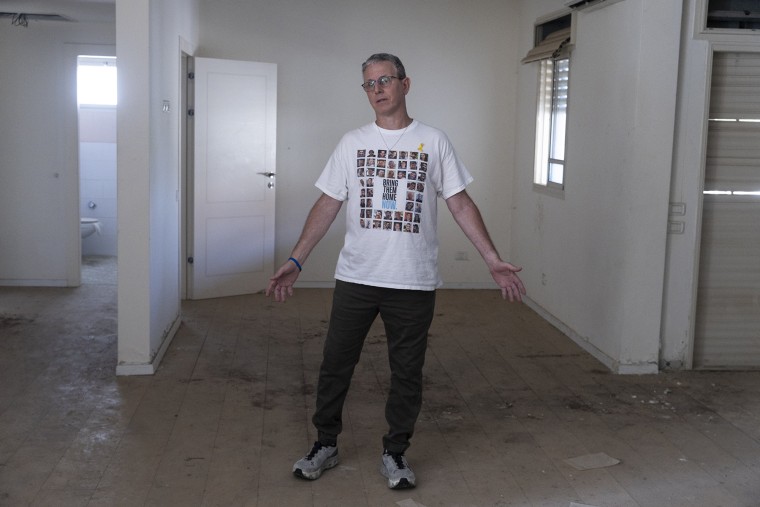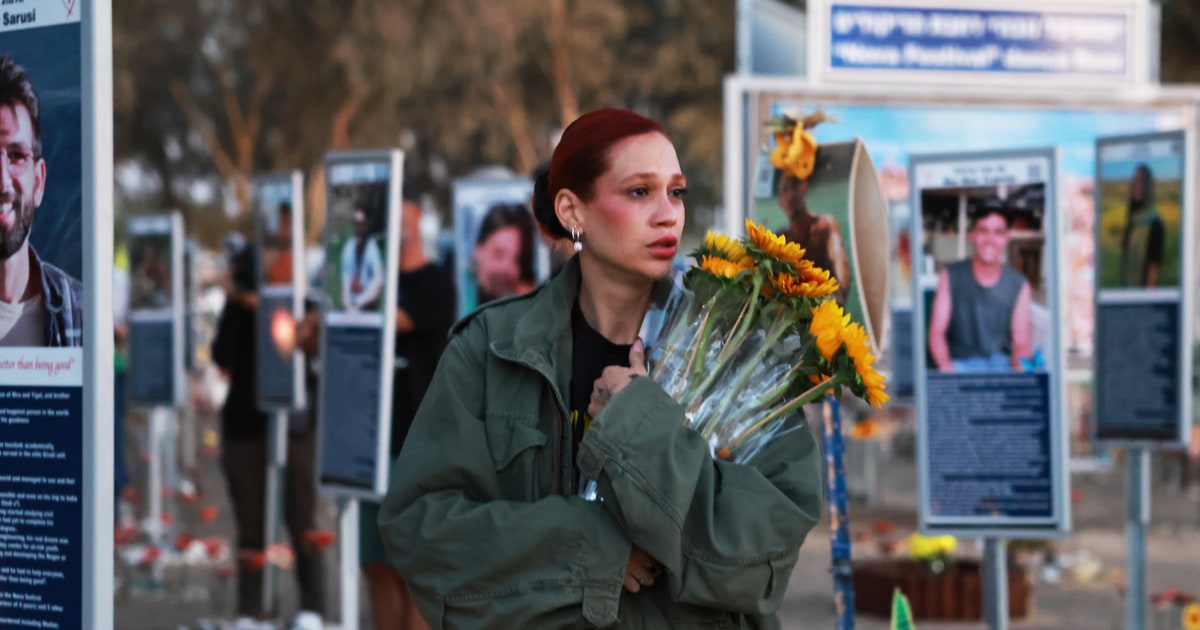There is little movement on the streets of Kibbutz Be’eri in southern Israel.
Three miles from the Gaza border, Be’eri was the single hardest-hit community in Hamas’ attack two years ago. In this kibbutz, 102 people were killed and more than 30 were kidnapped.
The silence is broken by the buzz of construction tools, a sign that a family has chosen to rebuild here. But most of the 125 damaged and destroyed homes remain untouched, stuck in time for the past 730 days.
Food lay scattered across kitchen counters and pairs of shoes sit by front doors, as flowers bloom from the ashes of burned-out homes.
Banners hang from the eaves of many houses, a solemn reminder to mark where residents were either killed or kidnapped.
At the Ben Ami family home, two banners sway in the breeze — one with the face of Ohad Ben Ami, the other showing his wife, Raz. Inside the house, Ohad Ben Ami told NBC News what happened when the kibbutz was overrun two years ago.
He was with his wife, he said, sheltering in a safe room as Hamas militants approached with their guns drawn and firing.
 Ohad Ben Ami stands in the house where he was kidnapped.Amir Levy / Getty Images
Ohad Ben Ami stands in the house where he was kidnapped.Amir Levy / Getty Images
Gesturing with his hands in the air, Ohad described how he surrendered to the gunmen, proclaiming to them that he was the only one in the home as his wife remained hidden under a blanket.
“I was sure that they were going to lynch me,” Ohad said. Instead, they loaded him into a vehicle bound for Gaza, where he became one of the some 250 hostages taken by Hamas and other militant factions that day.
Ohad’s wife, Raz, faced a similar fate. She was discovered and kidnapped, too, held hostage for 54 days before her release.
But Ohad languished as a prisoner of Hamas for 491 days — much of that time spent underground in Hamas’ vast tunnel system. Held with five fellow hostages, Ohad described how the group was overcome with anxiety and exhaustion.
“All of us were nervous, all of us hungry,” Ohad said. “They were starving us.”
Earlier this year, in February, Ohad was released in a prisoner exchange. But from his home in Be’eri, where this ordeal began, he says that he often feels like he’s back in the tunnels beneath Gaza with those he left behind.
It’s a feeling he can’t shake, he said, until all the remaining hostages return home.
Now, as negotiations are progressing in Egypt, he said he’s more encouraged than ever before.
“I’m very optimistic. Because the Arab states agreed to this, and Israel agreed to this, and Hamas agreed to this, and Donald Trump is knocking on the table,” he said. “It will happen, I’m telling you, this time it will be finished.”
